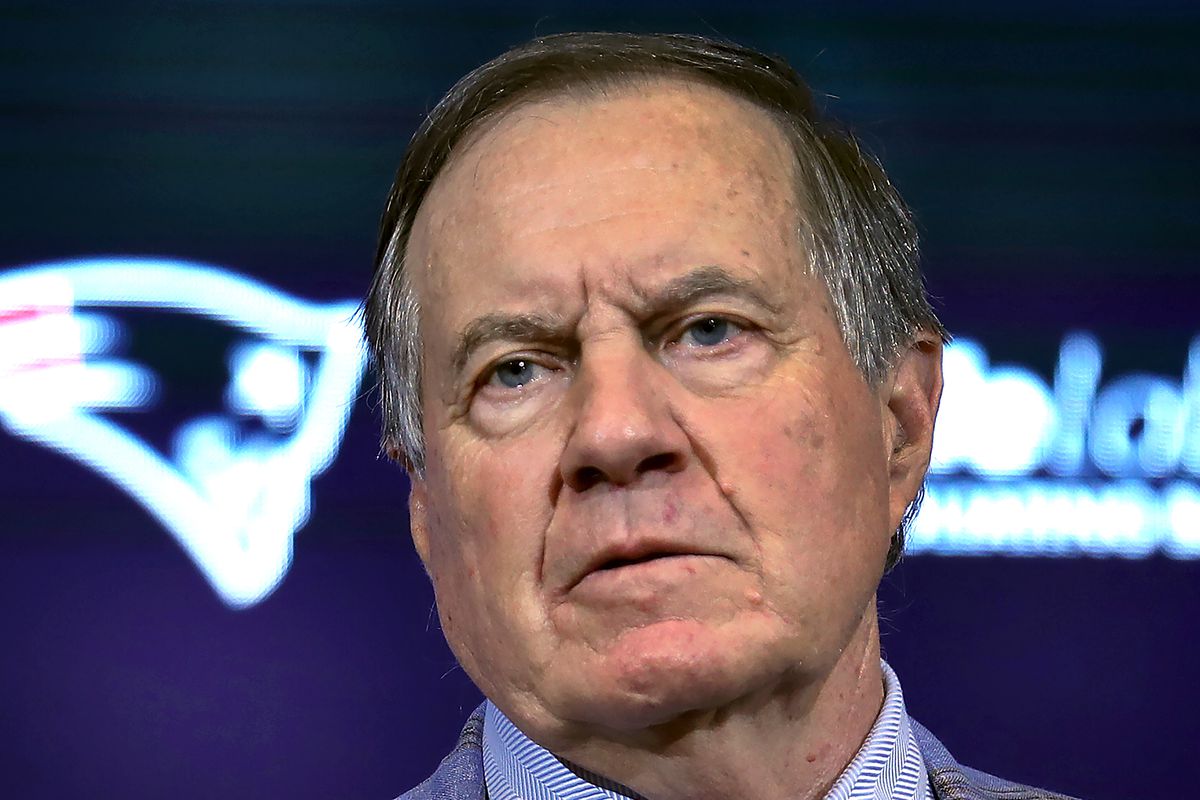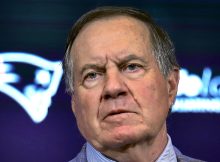
Regarding Bill Belichick, Brian Cashman, and the risks associated with a lifetime appointment…….
 This isn’t a piece advocating for the resignation of Brian Cashman. I disagree with a lot of things he does as general manager of the Yankees, but it’s generally accepted that he has one of the safest jobs in the league right now. I apologise to anybody who clicked on this page in the hopes that I would join the growing chorus of people calling for Cashman’s ouster. Nonetheless, recent occurrences in the sports world give us reason to consider the direction the Yankees are taking under Cashman’s leadership.
This isn’t a piece advocating for the resignation of Brian Cashman. I disagree with a lot of things he does as general manager of the Yankees, but it’s generally accepted that he has one of the safest jobs in the league right now. I apologise to anybody who clicked on this page in the hopes that I would join the growing chorus of people calling for Cashman’s ouster. Nonetheless, recent occurrences in the sports world give us reason to consider the direction the Yankees are taking under Cashman’s leadership.
The landscape of football coaching has witnessed a seismic transformation in the past month. Two of the greatest football coaches in history left their longtime residences in less than a day.
You might wonder, what does this have to do with the Yankees. Both men were regarded as having lifetime appointments in their respective professions due to their extraordinary runs of success, with each winning six championships while leading their respective football teams. Furthermore, neither the athletic director nor the ownership exercised much control over the decisions made by the coaches regarding the organisation. This sums up Cashman’s status with the Yankees very well, excluding the aspect of his extraordinary success.
Belichick’s sour disposition was as much of a defining feature of his time with the Patriots as his teams’ victories. Many of the players he coached became irritated with him to the point that even Tom Brady lost patience and won his final Super Bowl somewhere else. His harsh demeanour affected everyone, including the owner Robert Kraft. Although the general manager of the Yankees approaches it differently, Cashman and this disregard for his reputation are similar in many respects. He has publicly attacked his own players and supporters, showing little concern for the consequences of his conduct (at least until recently, possibly).
But when the victories stopped coming, Belichick’s style was more difficult to deal with. In 2022, following a lost campaign, Kraft.”Belichick believed that [DeAndre] Hopkins was not worth the financial investment.” Despite the fact that he was aware of the Patriots’ inferior offensive roster compared to some in the league, he continued to believe that his team could win by avoiding errors, playing a solid game on the whole, and winning by a narrow margin. All of it might be sufficient to contend for a division championship. Rather than succeeding, Belichick was unable to build a winning roster or determine whether his coaching could compensate for the team’s shortcomings. The majority of Patriots personnel feel that Belichick is still relevant in the game. He remains adept at coaching, enjoys imparting knowledge, and can devise a strategy better than anyone. The reason for this is his leadership, roster building, and organisational structure.
Everything about this seems uncannily similar to how Cashman manages his staff. Even while Cashman is aware that he does not have ownership’s blank cheque, he has felt the need to demonstrate his superior intelligence much too frequently. He has filled his rosters with bounce-back prospects and lottery tickets rather than safer picks because of this. This explains why he frequently exhibits stubbornness at the expense of helping the squad and is primarily more interested with winning a trade.
There are flaws in the comparison. Even while we wish the previous five years of Yankees baseball had ended, we have to reluctantly acknowledge that the team had never gotten as bad as the current Patriots squad had.
One thing that caught my attention in the conversation around the resignation of long-serving football coaches was the reference to the change in the core identity of each team. In his last years in New England, Belichick’s teams were less disciplined and prone to mistakes; they were no longer the “Patriot Way.” The same is true for Pete Carroll, who left the Seahawks after 14 seasons as head coach; by the time of his last season, the once-champion Seahawks had ceased to be known as “the Seahawks,” according to a number of anonymous sources within the league.
The Yankees, who can no longer claim the title of Evil Empire, could be said to be in the same situation. Whether evaluated by on-field performance or a more comprehensive organisational philosophy and character, they are essentially not the same Yankees.\
Once more, Cashman’s job is not being called for here. Rather, I would like to present Belichick as a warning example—that no position inside the company should be invulnerable. He and Cashman had both come to represent the organisations they oversaw and were considered part of the furniture, but in more recent times, Belichick’s bluster and departure from “the Patriot Way” contributed to his downfall. It’s sometimes best for everyone involved for the old guard to step aside, giving up some control and being willing to let in fresher ideas and viewpoints before concepts and fashions actually become too dated.
Leave a Reply